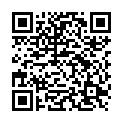|
|
|
| Module code: WIBASc445 |
|
|
2V+2U (4 hours per week) |
|
5 |
| Semester: 4 |
| Mandatory course: yes |
Language of instruction:
German |
Assessment:
Written exam
[updated 13.09.2018]
|
WIBASc445 (P450-0026) Industrial Engineering, Bachelor, ASPO 01.10.2013
, semester 4, mandatory course
|
60 class hours (= 45 clock hours) over a 15-week period.
The total student study time is 150 hours (equivalent to 5 ECTS credits).
There are therefore 105 hours available for class preparation and follow-up work and exam preparation.
|
Recommended prerequisites (modules):
WIBASc145 Physics
WIBASc155 Materials Engineering
WIBASc165 Mathematics I
WIBASc265 Mathematics II
[updated 21.05.2021]
|
Recommended as prerequisite for:
WIBASc-515 Automation Engineering
WIBASc-525-625-Ing10 Principles of Supply Networks and Systems
WIBASc-525-625-Ing22 Automation Technology
WIBASc-525-625-Ing25 Electrical Engineering Practical Course
WIBASc-525-625-Ing29 Battery System Technology
WIBASc-525-625-Ing9 Introduction to Energy Technology
[updated 09.10.2025]
|
Module coordinator:
Prof. Dr. Rudolf Friedrich |
Lecturer:
Prof. Dr. Rudolf Friedrich
[updated 10.02.2020]
|
Learning outcomes:
After successfully completing this module, students will have received a well-founded overview of the basics of electrical engineering and the most important basics and principles for industrial engineers.
- They will be able to describe and calculate electric and electromagnetic fields mathematically.
- They will know the various electrical components and be able to describe them in terms of design and function.
- They will be able to calculate networks in terms of voltages, currents and power.
- They will be able to calculate DC and AC circuits.
- Students will know about the dangers of electricity.
- And lastly, they will be familiar with different protection systems and network forms.
[updated 13.09.2018]
|
Module content:
1. Electrostatic field
2. Electromagnetic field
3. Components for electrical engineering
- Resistor
- Capacitor
- Coil
- Diode
- Transistor
4. Basics of electrical machines
5. Electrical network analysis and circuit technology
6. Electrical metrology
[updated 13.09.2018]
|
Teaching methods/Media:
Lecture and exercise with solution. Lecture notes will be provided: Educational films and DVDs will be used during the course.
We will work with educational films and DVDs.
[updated 13.09.2018]
|
Recommended or required reading:
_ Bosse, G.: Grundlagen der Elektrotechnik I+II+III, 3. Auflage, Springer Verlag, 1996
_ Haubrich, Hans-Jürgen: Elektrische Energieversorgungssysteme - Skript _Elektrische Anlagen I_, Verlag der Augustinus Bhg, 1997
_ Lindner, H./ Brauer, H./ Lehmann, C: Taschenbuch der Elektrotechnik und Elektronik, 9. Auflage, Hanser Verlag, 2008
_ Schrüfer, E.: Elekrische Messtechnik, 9. Auflage, Hanser Verlag, 2007
[updated 13.09.2018]
|

